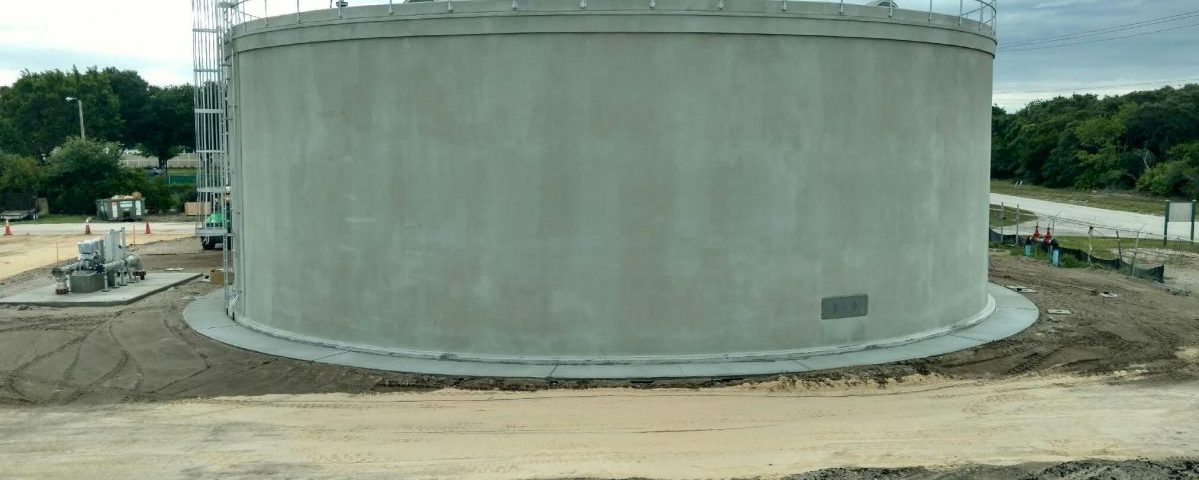A new 1 million gallon reclaimed water storage tank will soon provide reclaimed water to new residential and commercial customers in St. Augustine Beach

A new 1 million gallon reclaimed water storage tank will soon provide reclaimed water to new residential and commercial customers in St. Augustine Beach
PALATKA, Fla., Aug. 24, 2016 — Construction is complete on a new 1 million gallon reclaimed water storage tank in St. Augustine Beach that will further extend north Florida’s drinking water supply and protect the Matanzas River. The project is a cost-share partnership between St. Johns County and the St. Johns River Water Management District.
“We are celebrating the completion of yet another great partnership project between the district and St. Johns County to expand reclaimed water further into the community,” said St. Johns River Water Management District Executive Director Dr. Ann Shortelle. “I’m excited to partner with St. Johns County on this solution to reduce nutrient loading to the Matanzas River, help offset future water supply needs and provide for long-term growth in the area.”
The project includes a ground storage tank on Anastasia Island and high service pumps to complement existing reuse facilities serving the Marsh Creek Golf Course and to provide pressurized service to the new Ocean Cay residential community. Ocean Cay consists of 130 homes currently under construction. The project will conserve approximately 9,100 gallons per day of potable groundwater, which would have been used for irrigation.
“This project is another key example of our ongoing commitment to conserve valuable groundwater while utilizing highly treated wastewater effluent for beneficial purposes,” said St. Johns County Utility Director Bill Young. “Because we share these important goals with the district, our ratepayers and our environment again benefit from cooperation and cost-sharing with the district.”
The project will allow the county to provide reclaimed water to new residential and commercial customers in the area. Adding storage and pressurized service opens up future opportunities to expand the reuse system on the island.
Reclaimed water is wastewater that has been thoroughly treated to remove harmful organisms and substances, such as bacteria, viruses and heavy metals, so it can be reused. Water reuse involves taking what was once wastewater, treating and disinfecting it, then using the resulting high-quality reclaimed water for a beneficial use, such as irrigation for golf courses, parks, highway medians, and residential and commercial properties.

